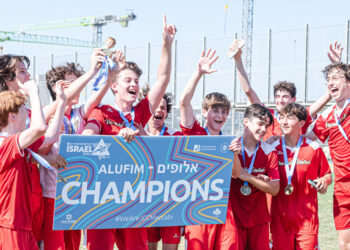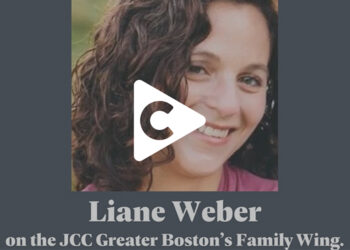Two new summer programs are coming to the YMCA of Greater Kansas City – Y Learning Academy SPARK Summer Camps and SPARK Focus.
After a successful Y Learning Academy that has been supporting over 1,400 students with afterschool and remote learning for this school year, the YMCA of Greater Kansas City has developed two new camp models for the upcoming summer.
“We have been hearing from school districts, parents and even national media, of the extreme learning loss children are facing due to remote and hybrid learning,” said John Mikos, the president and CEO of the Kansas City Y. “To help combat this, we have developed two new summer programming concepts launching in June.”
SPARK is an eight-week, full-day summer camp program with licensed teachers and Y camp counselors. In addition to dedicated academic time for campers, SPARK will include holistic learning components from the YMCA’s youth development curriculum that targets those students identified by the school who are at risk of being further behind when school resumes in the fall.
A breakdown of the Y’s youth development curriculum and target learning areas include:
Family and Parent Engagement
Program participants and YMCA staff will partner to ensure programming extends between individual sites and participant households in a cooperative structure that encourages participation and ownership in the program.
Essential Attributes:
- Clear, concise communication modes.
- Frequent opportunities for families to participate in program activities.
- Modality for families to influence program structures and functions.
Examples:
- Recruitment materials.
- Back-to-school programming.
- Content-based lessons with family/community themes.
- Specific family interaction opportunities (Absolutely Incredible Kid Day).
Global Learning and Inclusion
Program participants will utilize critical thinking skills to understand the connectivity between themselves, their community and the impact of culture on socialization.
Essential Attributes:
- Classroom norms that reinforce diversity, inclusivity, respect and responsibility.
- Lesson planning that is thoughtful and provides diversity in both content and learning structure.
- Open dialogue focused on understanding differences and acceptance of new ideas.
- Vantage point of the world beyond neighborhood or town.
Examples:
- Family heritage project.
- Black History/Hispanic History lessons.
- Globally-focused art lessons.
21st Century Skills
Program participants will practice and develop proficiency in skills aimed towards modern workforce development.
Essential Attributes:
- Ability to read, write and communicate effectively in common modalities.
- Understanding of the changing nature of a dynamic society.
- Ability to effectively utilize technology to improve learning/social opportunities.
- Differentiate between useful and ineffective learning/social modalities.
Examples:
- Connect with classroom and other learning opportunities using available technology.
- STEM curriculum (robotics, dynamic motion, structural engineering, etc).
- Projects connecting skill development with workforce needs.
Academic Enrichment
Program participants will utilize skills and resources to connect and continue classroom learning during program time.
Essential Attributes:
- Program participants have resources, space and time to complete and extend essential classroom learning.
- Program staff provide tutoring and support consistently and equitably.
- Supplemental time and “student choice” options include academic opportunities.
Examples:
- YMCA “homework help” study groups.
- “Discrete learning” projects and activities.
- Literacy groups.
Health and Wellness
Program participants, through experiential and traditional learning modes, will examine and practice research-based healthy living components.
Essential Attributes:
- Program participants will spend at least 33% of program time actively involved in a physical movement activity.
- Nutrition and healthy lifestyle reinforcement through information and structure (daily healthy snack).
- Social/emotional support both overtly (lessons) and discrete (individual support).
Examples:
- Structured physical activities and games (indoor/outdoor).
- Cooking lessons.
- “Individual Student Plan” support program with Behavioral Specialist Team.
College and Career Readiness
Program participants will be exposed to traditional and trending college and career pathways through program resources to create future connections
Essential Attributes:
- Frequent exposure to workforce trends.
- Frequent exposure to college trends.
- Financial literacy.
Examples:
- “Y-Bucks” classroom economy.
- Guest speakers.
- Career Expo Day.
Service Learning
Program participants will actively participate in site-based, local, regional or other opportunities to support essential community needs.
Essential Attributes:
- Overt connections to organizations who support community outreach.
- Participation in projects designed to support community needs.
- Development of philanthropic mindset.
Examples:
- Community food bank project.
- Neighborhood cleanup.
- Community needs assessment project.
Leadership Development
Through activity, reflection and growth, program participants will utilize talent and gain understanding of what it means to lead.
Essential Attributes:
- Critical thinking skills related to group dynamics.
- Ability to understand complex situations and solve problems.
- Clearly communicate in an effective way.
Examples:
- Daily/Weekly “YDA in-training.”
- Profiles in leadership activity.
- Game/competition opportunities.
A second SPARK option available this summer at the Kansas City Y will be SPARK Focus.
SPARK Focus provides many similar elements of the traditional SPARK summer camps program, but implements content and learning discreetly as part of a traditional camp day. Each day provides an opportunity for students to participate in fun activities that build leadership skills, character development, service learning and more.
SPARK Focus will use literacy assessment tools, such as Scholastic Reading Inventory or similar, to determine a baseline reading achievement level early in camp. Formative assessments will be used throughout camp to ensure instruction is successful. At the end of camp, campers will take a post-test demonstrating growth based on baseline metrics.
A few of the program themes include:
Into the Wild – Participants will discover the wonders of the animal world and the great outdoors as they “travel” deep into the jungle, zip across the Sahara and even explore some native Kansas creatures.
Mad Scientist – Participants will test different scientific theories and myths while diving into a world of interactive science, including a variety of science activities, like chemistry experiments, myth-busting, and science facts versus fiction.
Helping Hands – Campers learn all about giving back and how good it can make them feel. They will come together and work on various service projects helping local organizations and their community.
“SPARK camps will be more important than ever this summer,” said Mikos. “Research shows summer learning loss disproportionately impacts students with economic challenges and students of color. We have targeted underserved and lower income populations and are working with the school district to identify students most impacted by learning loss.”
Mikos elaborated, the population they are working to reach is less likely to be able to afford this type of program. Fortunately, the Y received funding support, with one of the major funders being the Hall Family Foundation, to allow them to serve those most needed populations.
“This learning loss has been amplified in children who have missed 18 or more months of in-person school experiences due to COVID-19,” said Mikos. “SPARK summer camps will help families keep children engaged in learning while having all the fun of a YMCA summer camp.”










